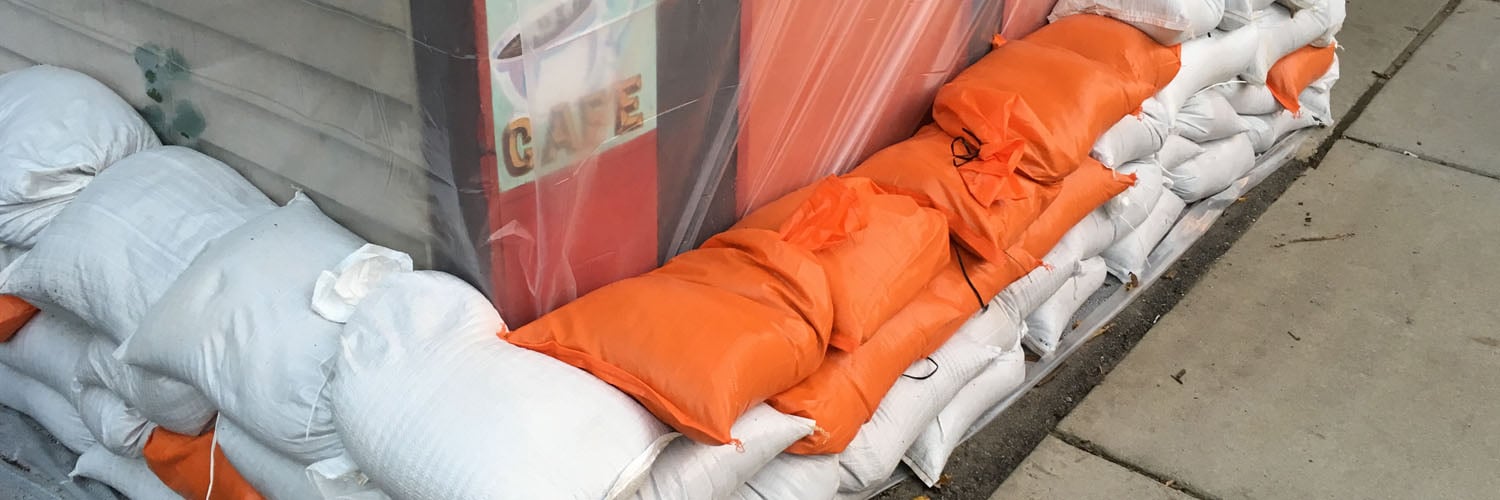
Flood Insurance from Massachusetts Agents
What is it?
Flood insurance generally offers specialized coverage against weather-caused water damage. Properties are usually not protected against this water damage unless a flood policy is in place.
Who needs it?
Flood coverage is recommended for most Massachusetts properties that are in a FEMA-designated flood zone. It’s often required for properties in high-risk zones.
Possible Coverages
- Rising water levels (i.e. standard flooding)
- Rogue and unusual waves (for coastal homes)
- Mudslides and mudflows (sometimes)
What is flood insurance?
Flooding isn’t just limited to waterfront properties. Properties near ponds, streams, or any other water could sustain water damage. To help Massachusetts property owners protect against this risk, there’s flood insurance.
Flood insurance generally offers specialized coverage against weather-caused water damage. Properties are usually not protected against this water damage unless a flood policy is in place.
When does purchasing flood coverage for a Massachusetts property make sense?
Flood coverage is recommended for most Massachusetts properties that are in a FEMA-designated flood zone. It’s often required for properties in high-risk zones.
Properties can be in flood zones almost anywhere throughout the state. Properties on the coast certainly can be damaged if there’s a storm surge. Properties on lakes and rivers are often at risk too, and even those with smaller ponds, streams, or brooks might be flooded.
Get A Quote!

What risks do flood policies cover?
Flood policies usually cover several risks related to atypical water patterns. Policies might protect against damage resulting from:
- Rising water levels (i.e. standard flooding)
- Rogue and unusual waves (for coastal homes)
- Mudslides and mudflows (sometimes)
- Other water risks as declined in a policy
Notably, water damage occurring from sources inside a property generally isn’t covered. This usually isn’t the insurance for burst pipes or other plumbing problems. For those risks, many homeowners policies offer an endorsement.
What types of properties can flood policies insure?
Flood policies are available for most types of property. They may be used to insure:
- Single-family homes
- Townhouses and condominiums
- Duplexes and other multi-unit residential
- Commercial and industrial buildings
- Mixed-use developments
- Special-use buildings (e.g. schools, hospitals)
What coverages are included in flood policies?
Flood policies often come with multiple protections. Some common coverages are:
- Building Coverage: May cover the primary structure on a property, as well as attached installations, such as fences or three-season rooms.
- Unattached Structures Coverage: May cover detached structures, such as retaining walls, boathouses, and other structures, especially if they're close to water.
- Personal Property Coverage: May cover personal belongings kept at the property, such as furniture, appliances, electronics, apparel, etc. This coverage might not include items housed in a basement or crawl space.
- Basement Contents Coverage: May cover personal belongings stored in a basement or crawl space.
- Pool Repair and Refill Coverage: May cover above-ground or in-ground pools, along with any pool deck, fencing, or other features.
- Temporary Living Expense Coverage: May cover expenses for accommodation and meals when a property becomes uninhabitable due to a flood event.
The coverages in NFIP policies generally conform to federal standards, while private policies might offer additional benefits. An experienced agent can review all coverage options with a property owner.
What are FEMA flood zones?
The Federal Emergency Management Agency has developed maps of different flood zones. Each zone has a different probability of flooding. The main zones are:
- Special Flood Hazard Areas (SFHA): High-risk zone.
- Zone B: Medium-risk zone.
- Zone C: Low-risk zone.
- Zone X: Zone with unknown risk.
Zones can be highly localized. For instance, a stream may only affect adjacent properties but not ones even a few lots away.
Properties that are financed and in an SHFA are normally required to be insured against flooding. Insurance might also be recommended for other zones. An insurance agent who knows flood policies can check what zone a particular property is in.
What’s the NFIP?
The National Flood Insurance Program provides subsidized flood coverage for properties in areas where flooding is a significant risk. Policies are usually available for properties in high- and medium-risk flood zones. For properties in these zones, the NFIP is often the only affordable way to get coverage.
In order to qualify for NFIP policies, a property must be located within a participating community. The vast majority of communities in Massachusetts participate in the NFIP, though. A knowledgeable agent can check to confirm that a specific community does.

Can renters get flood policies?
Yes, renters frequently can purchase a flood policy. This may be prudent if renting a one-story, basement, or ground-floor apartment.
How can property owners get flood coverage for their places?
If you need help insuring a property in Massachusetts against flood damage, contact the independent insurance agents at Norwood Insurance Agency. Our agents can check FEMA maps, help you choose coverages, and ultimately get you a flood insurance policy that’ll protect your place well.

